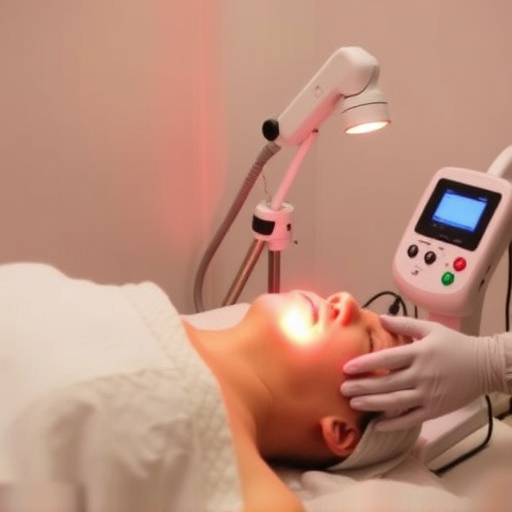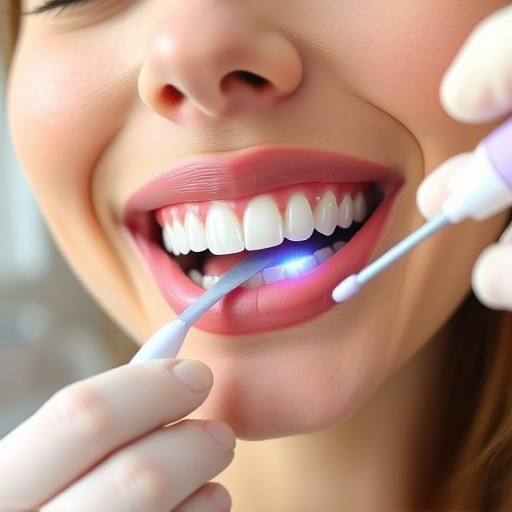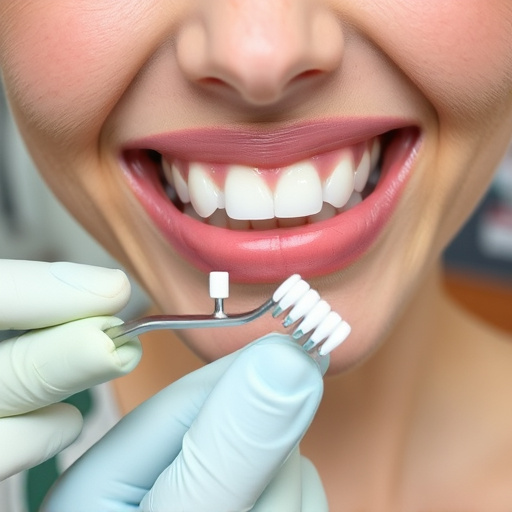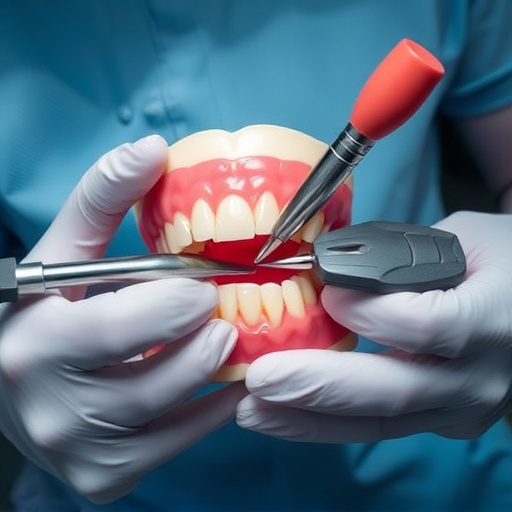Tooth sensitivity, caused by dentin exposure, can be triggered by various factors like hot/cold foods, acids, and wind. Preventive measures include regular dental check-ups, good oral hygiene, and addressing gum issues early. Treatment options range from specialized toothpastes to dental procedures like crowns or fillings, with extractions as a last resort. Early intervention leads to long-term benefits, including improved overall oral health and increased confidence in smiling.
Tooth sensitivity can be a debilitating oral health issue, causing discomfort and impacting daily life. But understanding the root causes—from enamel wear to gum recession—is the first step towards relief. This article explores effective treatments for sensitive teeth, from desensitizing toothpastes to professional procedures. By adopting these strategies, you can achieve long-term benefits, including improved oral health and enhanced comfort, ensuring a happier, healthier smile. Discover how to reclaim your confidence and say goodbye to sensitive teeth.
- Understanding Tooth Sensitivity: Causes and Common Triggers
- Exploring Effective Treatment Options for Sensitive Teeth
- Long-Term Benefits: Improved Oral Health and Enhanced Comfort
Understanding Tooth Sensitivity: Causes and Common Triggers

Tooth sensitivity, also known as dentin hypersensitivity, is a common oral health issue characterized by short bursts of pain or discomfort when consuming hot, cold, sweet, sour, or even windy foods and beverages. Understanding the causes and triggers of tooth sensitivity is crucial in managing and alleviating this condition effectively.
The primary cause of tooth sensitivity lies in the exposure of the dentin, a layer beneath the enamel that contains tiny tubes connected to the teeth’s nerve endings. Various factors can lead to dentin exposure, including toothbrush abrasiveness, gum recession due to improper brushing or flossing, dental wear from grinding or clenching teeth (bruxism), and even certain dietary habits like excessive consumption of acidic foods and drinks. Common triggers include cleaning products with harsh chemicals, cold or hot beverages, sugary treats, citrus fruits, and windy conditions, which can all activate the nerve endings within the dentin, resulting in a sensation of sensitivity. Preventive dentistry plays a significant role in managing tooth sensitivity by promoting healthy oral hygiene practices and regular dental check-ups to address issues like gum recession before they progress, thus preventing further dentin exposure. In severe cases where damage is extensive, procedures such as dental implants or tooth extractions might be considered as part of comprehensive oral care.
Exploring Effective Treatment Options for Sensitive Teeth

Tooth sensitivity can be a debilitating issue that affects many individuals, causing discomfort and impacting their overall oral health. Exploring effective treatment options is crucial to managing this condition. One common approach involves using specialized toothpastes designed to desensitize teeth by blocking nerve signals that cause pain. These products contain ingredients like nitrate minerals or potassium nitrate that help alleviate sensitivity over time.
Additionally, dental professionals may recommend procedures such as dental crowns or fillings to protect exposed dentin and reduce sensitivity. In more severe cases, tooth extractions might be considered if the sensitivity is due to damaged or infected teeth. It’s important to consult a dentist who can assess the specific needs of each patient and provide tailored solutions for managing and improving tooth sensitivity, thereby enhancing oral comfort and overall well-being.
Long-Term Benefits: Improved Oral Health and Enhanced Comfort
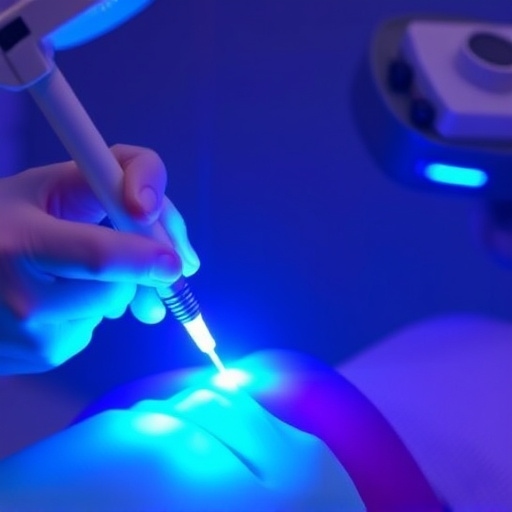
Investing in tooth sensitivity treatment goes beyond immediate relief from discomfort; it offers long-term benefits that significantly enhance overall oral health and comfort. Regular dental care, such as professional cleanings and cosmetic fillings, plays a crucial role in managing sensitivity by removing plaque buildup and restoring damaged tooth enamel. This not only mitigates the short-term pain but also prevents more serious dental issues down the line, including gum disease and tooth decay.
By addressing tooth sensitivity early, individuals can enjoy improved comfort during eating and drinking, as well as a heightened quality of life. Moreover, maintaining good oral hygiene through routine dental cleanings and visits to the children’s dentistry department (for kids) ensures that teeth stay strong and healthy, further reducing the chances of future sensitivity episodes. These comprehensive measures contribute to a vibrant, pain-free smile that fosters confidence and promotes a positive relationship with one’s dental health.
Tooth sensitivity treatment not only alleviates discomfort but also significantly improves oral health in the long term. By understanding the causes and exploring effective solutions, individuals can experience enhanced comfort and a healthier smile. Incorporating suitable oral care practices and choosing the right treatments ensures better overall well-being, making it a game-changer for those dealing with sensitive teeth.



